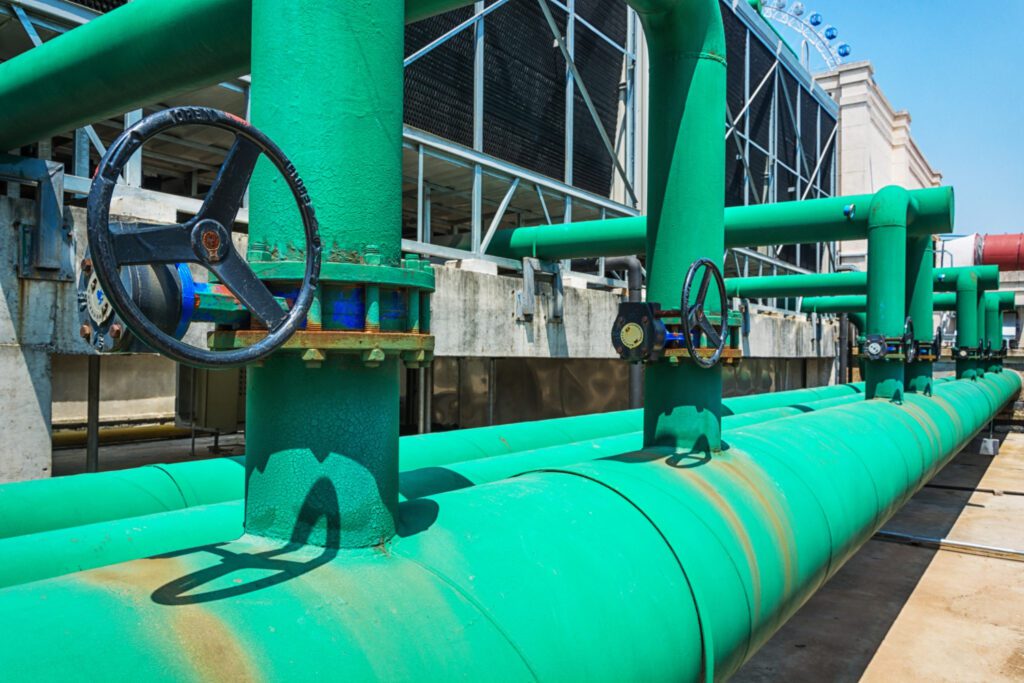Common Issues and Troubleshooting Tips for Air Compressors

Whether you’re a facilities manager trying to keep things running or a staff member responsible for ensuring the air compressors are properly working, it’s a task that can’t be avoided. When routine maintenance is neglected, it creates a bottleneck in production and costs time and money. Identifying issues and knowing what to do in those situations is invaluable to the team.
The last thing you need is a damaged compressor or poor air quality. Knowing how to extend the life of your compressor saves money and the possibility of downtime. When your equipment is in good condition, it operates better and causes minimal issues.
Having a safe environment for your team is a huge part of maintenance. When the compressor is not working correctly, other issues could endanger someone. Here’s why having an air compressor company on speed dial makes sense.
Air compressors all have some common issues that are easily rectified. These include:
- Low Air Pressure
This may not be obvious at first because it may seem like things are working how they should. When you start noticing issues, the problem may already be bigger than what you may have thought.
- Excessive Noise or Vibration
When the air compressor is malfunctioning, one of the obvious indications is noise or vibrations. This could be due to loose parts, the pistons hitting the plate, movement on the mount, or a crankcase with defects.
- Air Compressor Won’t Start
If too many connections interfere with the power source, the compressor may fail to start. The check valve may be stuck in the open position, which could prevent the air from going into the pump. In many cases, it could also have something to do with an oil tank that is leaking or doesn’t have enough oil. It’s also important to consider the pressure switch, which could be as simple as a quick adjustment to bring the air compressor back online.
- Frequent Cycling on and Off
When the air compressor consistently turns on and off, you may have an issue with the power supply, the motor, or the unloader valve.
- Excessive Moisture in the Air Lines
Too much condensation could cause rust on parts of the motor, creating an overworked compressor that starts to overheat.
- Overheating
Overheating can cause a lot of damage to the compressor. This may result from dirt inside the compressor, a limited air intake, poor ventilation, or something wrong with the head gasket or valves.
Troubleshooting Tips for Such Issues
Knowing how to rectify the situation can save time and money when you find these issues. Here are a few suggestions:
- Checking for Leaks in the Air Lines
Checking for leaks may not be easy because they are hard to detect and see. An ultrasonic acoustic detector can help determine the leaks’ origin.
- Adjusting the Pressure Regulator
When the compressor fails to operate, it should check the pressure switch adjustment to determine if it is making contact, or you may need to replace the switch to a lower cut-in PSI.
- Tightening Loose Components
Checking to see if there are any loose components can help determine where noises are coming from. This could be for several reasons, so tighten any loose ends, the mounting bolts on the compressor, rod nuts, belts, or bearings.
- Checking Power Supply and Connections
Turn the power on and off, press the reset button, and check the breakers. Check the oil level to determine if it should be replaced if it still is not working.
- Draining Moisture from the Air Tank Regularly
Ensure you drain the tank’s moisture consistently to avoid buildup and rust. This process starts by turning the air compressor off and releasing air pressure via the safety valve. A container should be under the tank to catch the moisture when you open the drain valve. Fully remove all moisture by tilting the air compressor. Make sure to close the drain and safety valves when done.
- Cleaning Cooling Fins and Air Filters
With dirt accumulating in the air compressor, it is easy to determine if this is part of the problem. If the compressor is dirty, blow compressed air onto the exterior fins at a low pressure. Once it is cleaned, turn it off to cool, then wipe it with a cloth to remove excess debris.
By using these tips, you can avoid some of the issues that may occur. Getting advice from a reputable air compressor company is always the best solution. Having insight on how to maintain an air compressor properly is essential. An experienced team of professionals can help create an effective maintenance schedule, demonstrate when and how to clean the filters, check your air quality, and track when your filters need replacing. For the best commercial air compressor advice, contact the team at Complete Engineered Solutions. When you’re looking for innovation, expertise, and world-class customer service, this team delivers. A leading-edge provider of compressed air, nitrogen generation, vacuum systems, chillers, products, and services, they can handle all your air compressor’s needs.
